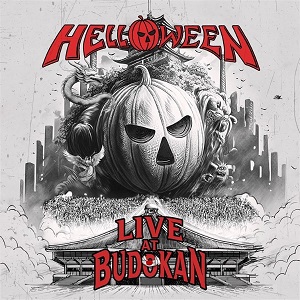Psychological Effects Of Heavy Metal Music
September 16, 2021, 3 years ago

Are you both a student and a heavy metal fan? Then you would most probably like to know whether heavy metal music can affect your studies, whether it can help you become more concentrated, or, on the contrary, it only distracts you from your plan? In this article, we will cover all the bases — the overall psychological effect of heavy metal music on your studying process, how to use any music to study more efficiently, famous studies related to the effect music has on intellectual activities and also (pay attention!) some myth busting. In this article we use references to major works in this field — The Music Instinct: How Music Works and Why We Can't Do Without It (Philip Ball, 2011).
How music affects our cognitive processes
In general terms, when we listen to music, all centers flare up at once, activity is observed throughout the brain: motor centers responsible for motor functions, "primary" emotional centers, language modules responsible for processing syntax and semantics, and auditory centers. Music is gymnastics for your mind.
One of the achievements of musical neuroscience is the fact that it questioned the hackneyed cliché of "right-brain" and "left-brain" thinking, which are traditionally associated with logic or analytics and emotions or intuition, respectively. Note that this idea is not devoid of meaning - the hemispheres do show some tendency towards specialization, including in the processing of a musical signal: the perception of pitch, for example, is mainly (but not completely) localized in the right hemisphere. But the big picture is much more complicated. For example, the left hemisphere appears to be more strongly associated with processing positive emotions, while the right brain is involved in processing negative emotions.
Music can act as a trigger for psychological processes, which, obviously, are very remotely related to cognitive aspects as such; it can, for example, affect the immune system and raise the level of proteins that fight microbial infections. Playing and listening to music also regulates the production of "mood hormones" such as cortisol, which suggests a good reason for using music therapy. If you are all the time anxious about your studies, deadlines, papers, delegate some of your essay assignments online to an expert essay writing service, such as Write My Paper Hub, a website that can write papers for you. Sometimes, letting others work for you is the best choice that reduces anxiety and helps you focus on other assignments. Buy several essays, listen to some music, and you will feel much better very soon.
Myth busting: There is no such thing as the Mozart effect
It should come as no surprise to us that record companies have spotted and explored the marketing potential of this idea, especially given the emotional implications of the issue of child development. But in reality, there is no evidence of the Mozart effect, and the German Ministry of Education and Research even released a special report on the issue - disappointing everyone - after sponsors flooded the ministry with offers to conduct research on the relationship between music and intelligence. A wave of enthusiasm has risen due to the 1993 publication in the scientific journal Nature, and after all, its authors could not even clearly explain - and did not even bother to somehow investigate — the question of the beneficial effect of Mozart's music on the development of intelligence in children.
Heavy metal music and its psychological influence
Now you know how music affects your brain and body in general; you also understand how your mood depends on the music you listen to. More of it, you know that there is no such thing as the Mozart effect, and you can stop forcing yourself to listen to classical music if you are not a big fan of it. But what about heavy metal music? Is there such a thing as a heavy metal music effect? Yes and no, so let's dig deeper into this question.
First of all, the studies proved that listening to music you don't like can be used only briefly as a source of mobilizing irritation. Previously, heavy metal music was seen as dangerous for your psychological state and mindful balance, but now it is seen as dangerous only if you dislike it and for some reason are exposed to it for a considerably long time. So yes, if you prefer something light and melodious, and your neighbors torture you with heavy metal music, you will feel irritated, anxious, and distracted. However, if it is the music you enjoy if it makes you more energetic and motivated — then listening to it will have a great overall effect on your studies.
How to use music the most efficiently? Let's, for now, skip the part where you just enjoy listening to your favorite music, be it Bach, Adele or heavy metal, and speak about concentration. Concentration is a fluid concept. You can become more concentrated in general, but it will take months if not years of mindful practices. Meanwhile, during one day, your concentration moves from very low to too high. Yes, there is such a thing as too strong concentration, and it is definitely not better than too low concentration.
When your concentration levels are low, your mind is drifting away, but you can come up with some creative solutions. When you are too concentrated, you feel agitated. You actually want to do something, you want to do everything, but your mind is too "tense" and thoughts are racing. The common ground of these two stages is clear — both extremes don't allow you to focus on one task and do it in a flow pace. Music can definitely help.
When you feel that your concentration level is low, heavy metal music is one of the best choices to improve the situation, no matter whether you enjoy it or not. If you enjoy it, it will make you more energetic. If you don't, it will cause a needed level of irritation, your mind will try to focus better in order to overcome this irritation. If you are over concentrated — avoid heavy metal music and try something light, with a smooth rhythm and no broken tones.











